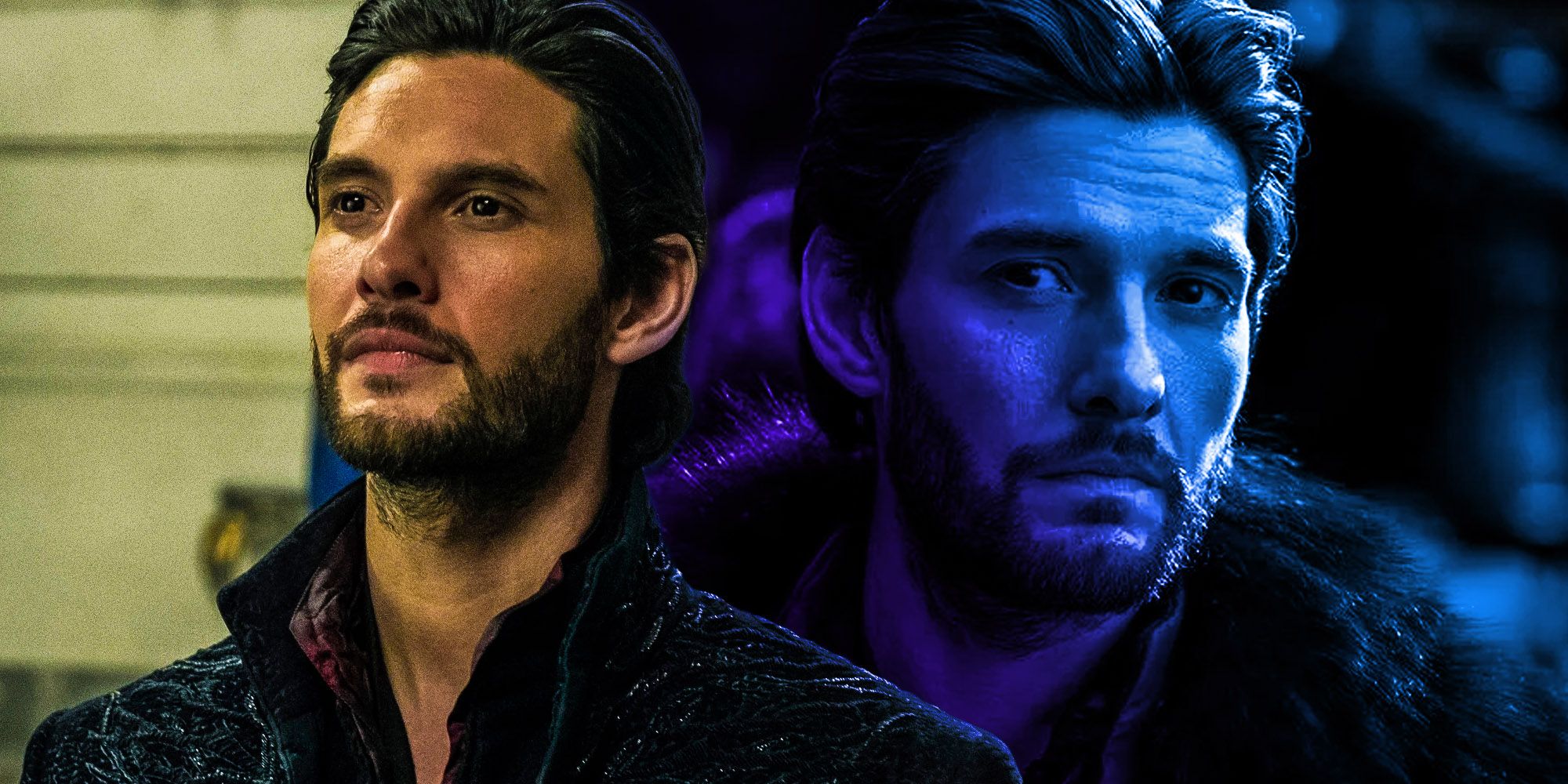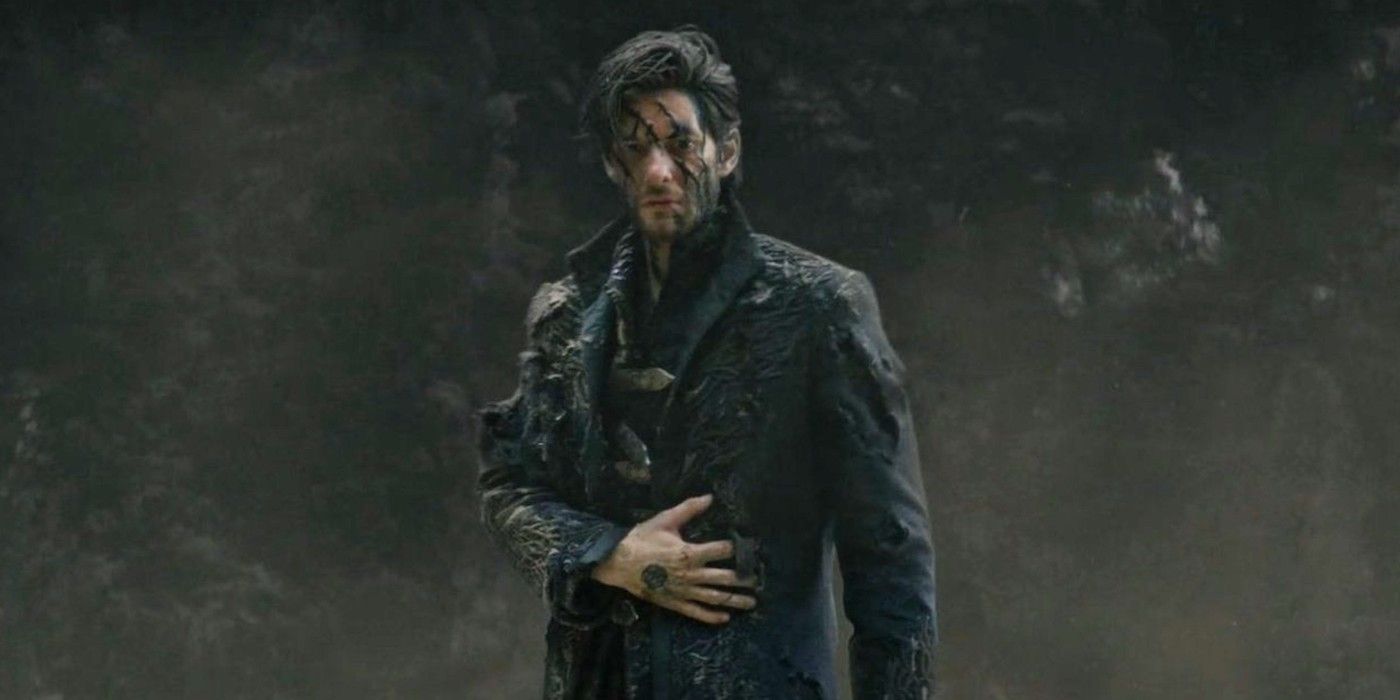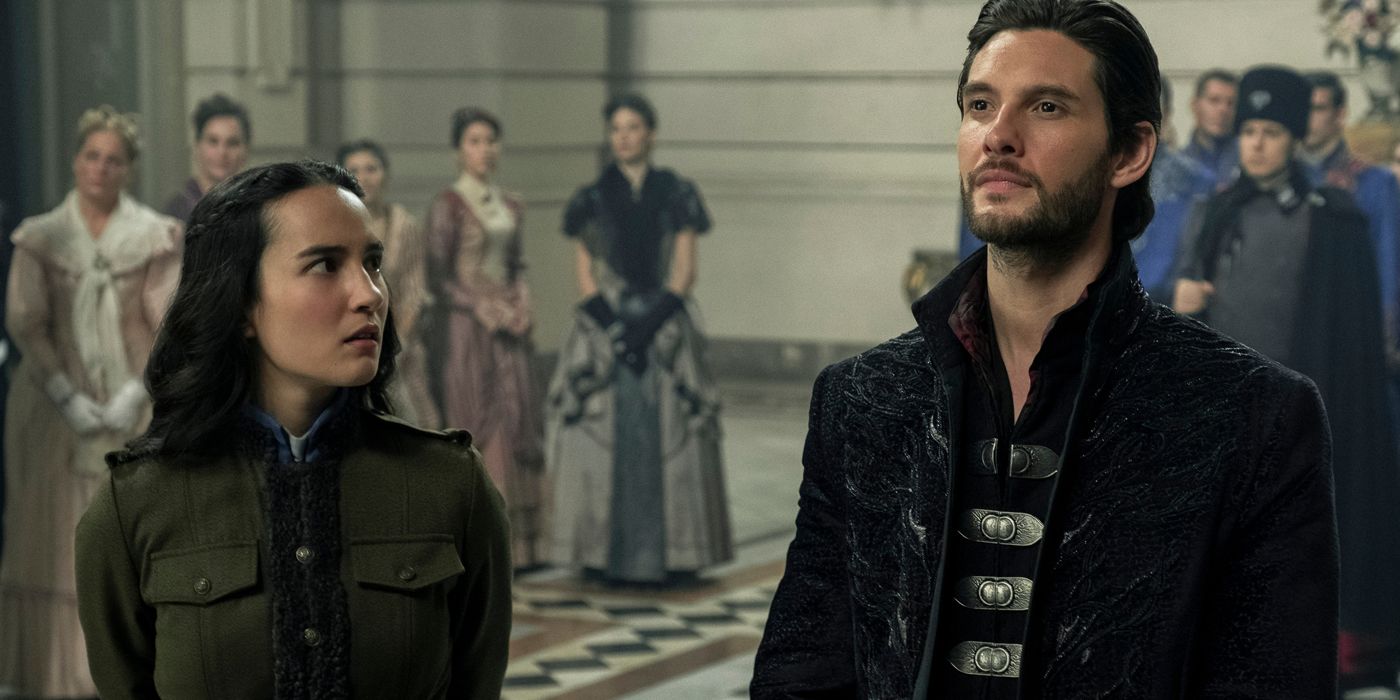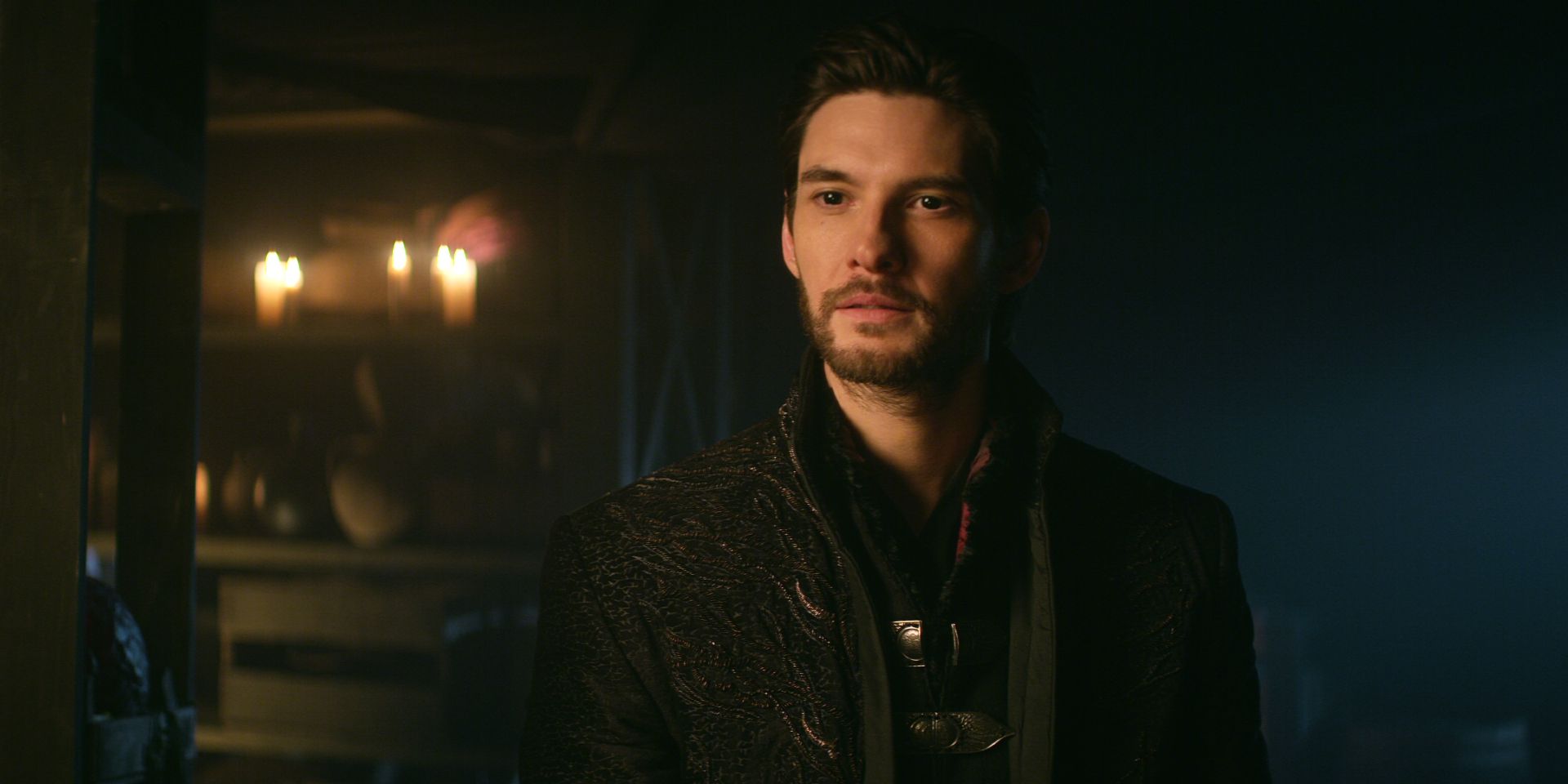Even though he's the quintessential definition of a problematic fave, it's alright to like and be attracted to Shadow and Bone's General Kirigan, a.k.a. The Darkling. Since the new Netflix TV series based on the best-selling books by Leigh Bardugo has been released, the lovely and charismatic cast has generated a number of brand-new fans swooning over various blossoming relationships and future love connections to go along with those who were already lovers of the books.
And while the entire cast has gotten a lot of love, the most intense swooning has been perhaps reserved for Ben Barnes' General Kirigan, the darkly charismatic antagonist of the series. Referred to by some as the Darkling, and referred to as the Black General by others still, Kirigan is the one who set events in motion centuries ago and professes to want to make things right. It's quickly revealed, however, that he's the real villain of the series, one willing to manipulate and control others if it serves his purposes, willing even to murder and be pointedly cruel. Still, it hasn't stopped audiences from vocally sharing their attraction for the Darkling on social media, thanks largely to the absurdly handsome Ben Barnes' seductive portrayal of the immortal Shadow Summoner.
Still, the social media swooning has rubbed some the wrong way, as this piece from iO9 shows. The intense attraction to and love of the character of the Darkling has been seen by some as troubling, with the tone from some corners of the internet coming across as downright offended that people are romanticizing such a manipulative and toxic character. And that's fair for people to feel. But it's also okay for fans to feel that pull toward the Darkling, as well – even to like him. Here's why.
He's Clearly The Villain, Not A Traditional Romantic Interest
While there are some aspects of Shadow and Bone that lean heavily into romantic tropes, particularly of the YA persuasion, there are a few ways in which the story upends those very tropes, including a few involving the Darkling himself. Central to that is that, though he's initially set up as a love interest, the pretense of him being a worthwhile romantic partner is quickly stripped away and his real, malevolent ambitions are laid bare. There is no teenage yearning from Alina when she learns the truth of him – which she believes immediately, no convincing required – and no returning to him again and again, hoping he might not be as bad as he appears, that she might change him if she just tries hard enough. No. He's a villain, the villain, and the show makes that abundantly clear.
It's a far cry from, for example, Twilight, where the century-old vampire decides he wants to make a high-school girl his child bride and teen mom, the series attempting all along to justify it by arguing that Edward truly loves Bella. In the fictional world Stephenie Meyer created, it's painted as romantic. In the real world, he'd be branded a pedophile. However, Shadow and Bone makes no attempt to justify the Darkling's actions regarding Alina. His actions are simply a means of manipulation. While it gives him a sympathetic backstory, extending sympathy to a character is not the same as justifying their actions. The Netflix show knows he's a bad guy. That means the audience does, too.
That's important. One of the central arguments against series like Twilight and Fifty Shades of Grey is how toxic the relationships are. Edward Cullen is creepy for watching a young girl sleep and being in a relationship with her; Christian Grey is possessive and controlling. Both were rightly criticized for sending the wrong kind of message to younger, more impressionable audiences reading them, precisely because those stories painted their male protagonists' actions in a positive light, excused their behavior, and made them the romantic heroes of the story. While the Darkling is also manipulative, Shadow and Bone, wisely, sends the opposite message: He may be beautiful and he may be seductive and he may have a sad story, but he's a monster now and you best steer clear. Once his real motives are revealed, at no time is the audience unaware he's dangerous, toxic, and cruel. Likewise, at no time does the series ever suggest that Alina should forgive him or be the one to try to save him from himself. Neither Alina or the audience are under the impression he's a good guy.
If The Audience Feels The Pull Toward Him, It Means It's Working
Attraction to the Darkling, however, isn't about him being a good guy, but about his magnetic pull. It's part of his power, his ability to deceive and seduce. While it's not covered as extensively in the series yet, the books make it abundantly clear that any allure for the Darkling is a false construct, that everyone feels that pull toward him whether they want to or not; it's just what he does. He radiates power and confidence and security, and for Grisha who are tired of being persecuted, or for those who don't feel like they belong, he offers a feeling of stability and protection. People can't help but be attracted to him. If the audience is also feeling this pull, it means the writing of the adaptation is working and that magnetic quality is coming across on screen as it's supposed to. It also doesn't hurt that as the Darkling, the extraordinarily attractive Ben Barnes is more than up to the task of throwing off waves of dark charisma at the audience.
Even so, the series still does broach the fool's gold aspect of the Darkling's affections. Genya gives Alina a subtle but pointed warning when the Darkling sends Alina a custom kefta, warning her to beware of powerful men. While Genya's coded words have the double meaning of also being about the king, who has sexually assaulted Genya multiple times in his position of power and control over her, she's also speaking of the Darkling. Though Genya may be a bit further removed from him due to her position in the royal palace and not the Second Army, she nonetheless understands that intense pull toward the Darkling as she's felt it herself. If viewers don't feel it, as well, it means something fundamental is not working on screen. Alina, like the audience, can feel that pull, but she never gives in to it completely, recognizing it can never be more than a surface attraction.
Fiction Gives Us The Ability To Explore Forbidden Things Safely
That's what the fiction of Shadow and Bone does for an audience. Humans are naturally attracted to the dark and the titillating; forbidden fruit is always the most tempting. And that's exactly what the Darkling is: forbidden fruit. The audience can look, and even fantasize to their heart's content, but by virtue of the fact he's a completely fictional character, they are barred from ever actually touching. Romanticizing the Darkling is a way to safely explore darker desires in a way that gives someone the taste of a forbidden affair without the actual danger of one. Swooning over the Darkling grants all of the fun of dating a charming rebel with none of the toxicity that comes with it in real life. It's not particularly any different than getting into a Harlequin novel; both offer a controlled dose of romance and desire in their purest, hottest forms. In reality, that often translates to unhealthy or tumultuous relationships because it usually comes with emotional instability, baggage, and obsession. In hour-long chunks on screen, it's simply a fun, temporary escape.
In the same way that watching a horror movie can help alleviate anxiety because it offers a person a reflected echo of true danger in a controlled environment, the Darkling is a release valve for viewers living in a world where romance and passion very rarely exist in that way. It's perfectly fine to embrace escaping into temporary daydreams about a smoking hot, charismatic, powerful man for a bit. And it's arguable that after the past year the world has had, it's not just fine, but understandable – even necessary. There's a reason Bridgerton was an enormous hit for Netflix and there's a reason people are massively into the Darkling, too. That's not to say he's not a complex and complicated character. But when people are watching Ben Barnes do work on the screen, they're not exactly concerned with what the Darkling thinks of the Seven Virtues of Man. It's beside the point.
While critics and audiences should absolutely point out when a character or trope is problematic, it's generally most warranted when a work of fiction is attempting to pass a toxic character off as a good person or to excuse their harmful actions. But Shadow and Bone knows the Darkling is the villain, and not to be trusted. So does the audience. It was never about morality at all, though, but about attraction stemming from pure, bad boy smokeshow hotness. And that, the Darkling safely serves up to people by the bushel.




